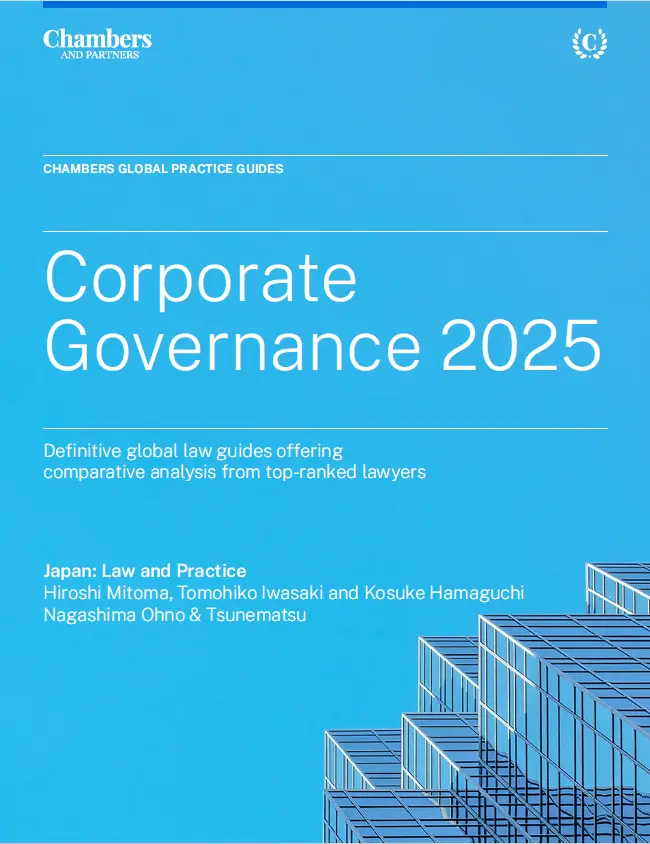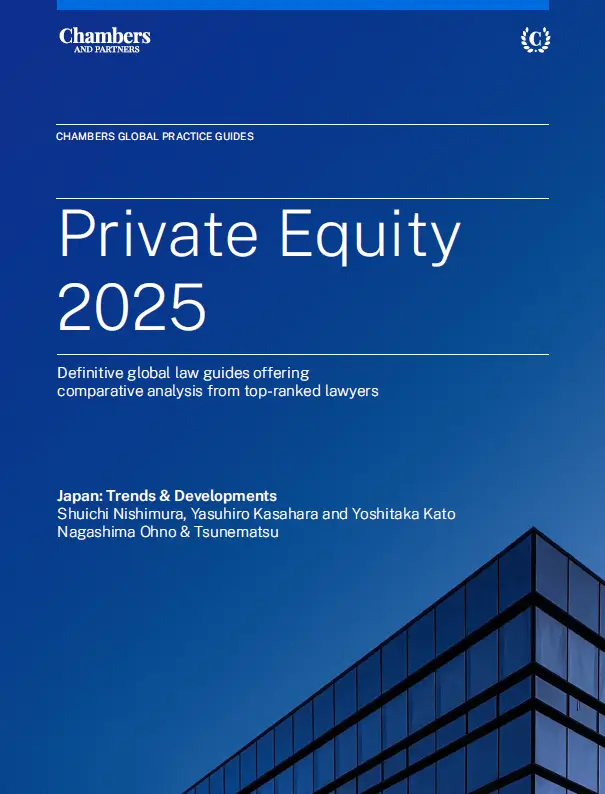
NO&T Asia Legal Review
In the first calendar quarter of 2025, certain key changes in the regulatory landscape have been introduced by the Government of India by way of notifications and as part of the Union Budget 2025-2026 (“Budget 2025”). This article sets out a summary of the key updates announced in this quarter which would be relevant from the perspective of a foreign investor.
On 3 January 2025, the Ministry of Electronics and Information Technology released the draft Digital Personal Data Protection Rules, 2025 (“Draft Rules”) under the Digital Personal Data Protection Act, 2023 (“DPDPA”) for public consultation, accompanied by an explanatory note that provides further context to the Draft Rules. The DPDPA was enacted in August 2023, and is yet to come into force. While the DPDPA provided for the rights of the data subject and stipulated key compliances that would need to be complied by a data fiduciary (data controller), it left the details for such compliances to be prescribed by way of rules. The Draft Rules accordingly prescribe detailed rules regarding such matters including notice and consent requirements, cybersecurity requirements, manner of seeking verifiable consent for children, grievance redressal mechanisms, personal data retention periods, reporting personal data breaches, etc. The public consultation process was completed on 18 February 2025.
As on the date of writing of this article, the status of the implementation of the Draft Rules is not clear. As a first step however, it is expected that the rules concerning the formation and composition of the Data Protection Board (which will be the regulating authority) will come into force, followed by compliance-related rules to be complied by data fiduciaries.
On 20 January 2025, the Reserve Bank of India issued an updated Master Direction on Foreign Investment in India (“Master Direction”). The updated Master Direction provides much needed clarity on certain long-standing issues relating to the structuring of downstream investments by foreign owned or controlled companies (“FOCC”). FOCC i.e. an Indian company that is majority owned and controlled by foreign entities is a unique concept under Indian foreign exchange laws. From a company law perspective, an FOCC is treated as a domestic company but from a foreign exchange law perspective, an FOCC is treated at par with a foreign investor. Accordingly, any investment by an FOCC is subject to same entry route restrictions, sectoral caps, pricing guidelines and approval requirements as are applicable to a foreign investor investing directly into India.
Notwithstanding the aforesaid, it was interpreted by AD-Banks that certain structuring options that were available to foreign investors were not available to an FOCC. The Master Direction now clarifies that FOCC while undertaking downstream investments (i.e. indirect foreign investment) shall be entitled to the same flexibility in structuring transactions, as is available to a foreign investor in case of direct foreign investment, which include:
The finance minister in the Budget 2025 proposed a major reform in the insurance sector by increasing the maximum foreign direct investment (FDI) limit from 74% to 100%, under the automatic route i.e. without any government approval. The enhanced limit is subject to the condition that the insurers invest the entire premium collected in India itself. Given the population of India which is currently severely underinsured, this liberalization would serve as a massive opportunity for foreign insurers looking to set up wholly owned business operations in India. An additional relaxation was also offered to foreign re-insurers by lowering the net-owned funds requirements from INR 50 billion (approximately USD 570 million) to INR 10 billion (approximately USD 114 million).
Further, the Budget 2025 has proposed constituting a high-level committee for regulatory reforms which will conduct a comprehensive review of all non-financial sector regulations in India seeking to ensure ease of doing business in India. As per the press release following the Budget 2025, it is stated that the committee is expected to make recommendations within a year. The objective is to strengthen trust-based economic governance and take transformational measures, especially in matters of inspections and compliances.
The Ministry of Corporate Affairs (“MCA”) had on 27 October 2023 amended the Companies (Prospectus and Allotment of Securities) Rules, 2014 (“PAS Rules”) mandating (i) every private company (which is not a small company) as per its audited financial statements on or after 31 March 2023, to (A) facilitate dematerialisation of all its securities by 30 September 2024 (“Due Date”) and (B) with effect from the Due Date, issue the securities only in dematerialised form; and (ii) a security holder of a private company (A) intending to transfer its securities in the company on or after the Due Date, to get such securities dematerialised before the transfer; (B) intending to subscribe to any securities of such private company whether by way of private placement or bonus shares or rights offer on or after the Due Date, to ensure that all securities held by the security holder are in dematerialised form before such subscription.
However, given that dematerialisation is a time-consuming process requiring opening of demat accounts, obtaining of ISIN, entering into agreements with depository participants etc., many private companies and security holders were unable to complete the process by the Due Date. Several representations were made by multiple stakeholders to the MCA to postpone the deadline. While the deadline of 30 September 2024 passed, on 12 February 2025, the MCA issued a notification further amending the PAS Rules and postponing the deadline for the dematerialisation of securities of private companies to 30 June 2025. This means that, for the time being, securities of private companies can be issued and transferred without being dematerialised. Notwithstanding the extension of the Due Date, it is recommended that private companies and existing shareholders of Indian private companies complete the process at the earliest.
The Government’s constant endeavour to ease doing business in India is reflected through the above amendments/updates. With several other regulatory reforms expected this year, foreign investors investing in India should ensure they are abreast of the latest developments and the potential impact it can have on their growth strategies and structuring of investment opportunities.
This newsletter is given as general information for reference purposes only and therefore does not constitute our firm’s legal advice. Any opinion stated in this newsletter is a personal view of the author(s) and not our firm’s official view. For any specific matter or legal issue, please do not rely on this newsletter but make sure to consult a legal adviser. We would be delighted to answer your questions, if any.


Patricia O. Ko


Yuan Yao Lee


Yusei Uji


Shunsuke Minowa, Poonyisa Sornchangwat (Co-author)


Yusei Uji


(June 2025)
Hiroshi Mitoma, Tomohiko Iwasaki, Kosuke Hamaguchi (Co-author)


Chattong Sunthorn-opas, Thunsinee Sungmongkol (Co-author)


Ario Putra Pamungkas


Patricia O. Ko


Yuan Yao Lee


Yusei Uji


Shunsuke Minowa, Poonyisa Sornchangwat (Co-author)


(September 2025)
Yasuhiro Kasahara, Masaki Mizukoshi, Yoshitaka Kato (Co-author)


Yusei Uji


(September 2025)
Shuichi Nishimura, Yasuhiro Kasahara, Yoshitaka Kato (Co-author)


Ichsan Montang, Valencia Wijaya (Co-author)


(September 2025)
Yasuhiro Kasahara, Masaki Mizukoshi, Yoshitaka Kato (Co-author)


Yusei Uji


(September 2025)
Shuichi Nishimura, Yasuhiro Kasahara, Yoshitaka Kato (Co-author)


Ichsan Montang, Valencia Wijaya (Co-author)


Supasit Boonsanong, Thananya Pholchaniko, Phareeya Yongpanich (Co-author)


Patricia O. Ko


Claire Chong, Nozomi Kato (Co-author)


Yuan Yao Lee


Supasit Boonsanong, Thananya Pholchaniko, Phareeya Yongpanich (Co-author)


Patricia O. Ko


Claire Chong, Nozomi Kato (Co-author)


Yuan Yao Lee


Rashmi Grover


Shejal Verma


Rashmi Grover


Shejal Verma, Rashmi Grover (Co-author)